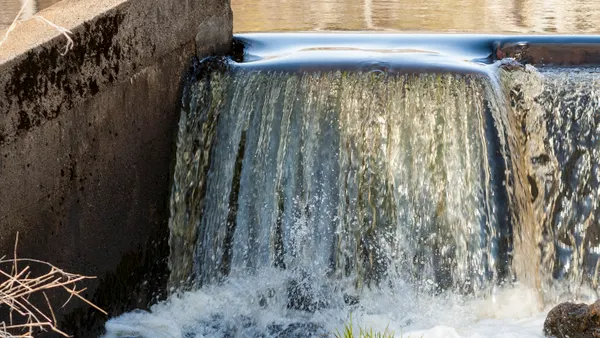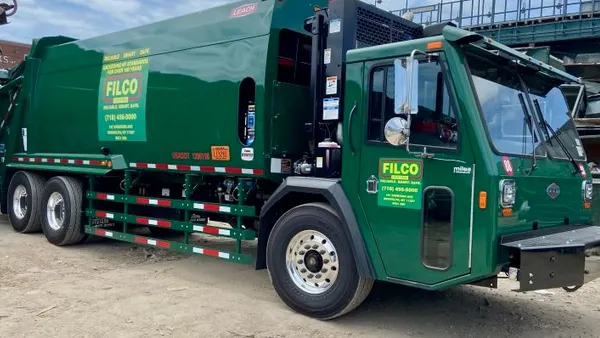Dive Brief:
- Advanced Disposal Services reported $383.1 million in revenue for the second quarter of 2017, up nearly 7% from the year before, thanks in part to its acquisition of CGS Services and seven other tuck-ins during the first half of the year. Total yield for the quarter was 3.1%, driven by average price yield of 1.7% and a 1.2% increase in revenue from recycled commodities. Based on these results, Advanced is raising its overall guidance for 2017 from a maximum of $1.475 billion to $1.49 billion.
- While questions were raised during the earnings call about how to interpret tighter margins due to integration costs, CEO Richard Burke said they will pay off in the long-run. He described one particular deal in Polk County, FL as key to servicing an upcoming residential contract. "Normally, we get the large long-term municipal contract as the anchor tenant. And then we do tuck-ins and add to them," said Burke. "That's weighing on us a bit short term, but long term, this is Florida. This is Disney. So growth is big, and we like having a new platform in that disposal initial market."
- Burke described the remaining acquisition pipeline as "very strong," and said rising interest rates had become more of a factor than promises of tax reform due to the debt carried by many companies. He said discussions were ongoing with many prospects. When asked whether to expect another $80 million in deals to match the first half of 2017, Burke said that felt like "a stretch," but offered assurances that their pace hadn't slowed post-IPO. "We won't stop. We'll be opportunistic when they're there," he said.
Dive Insight:
Following their IPO last fall, Advanced Disposal has been moving at a fast pace in 2017. Their acquisition of CGS Services in February greatly expanded operations in Indiana and the company's presence has grown in multiple states. Continuing a trend from the first quarter, the Advanced team confirmed that their municipal contracts wins are still outpacing losses and they've been seeing reduced churn in commercial business. The company's volume trends have also been increasing faster than expected, though they cautioned that it's too soon to know for sure how much of that was related to wet weather.
Third-party disposal costs have increased, and the company also reported plans to increase environmental fees to address some landfill maintenance expenses, but they didn't anticipate any major effects on the recycling side. When asked the million-dollar question of what will happen with China's proposed scrap import ban, Burke reiterated that only about 2% of their revenue is tied to commodity prices. Much of the plastic they collect is in the Midwest, which is more likely to find domestic end markets than get exported. Because fiber accounts for about 60% of what they collect, and prices have been high for those categories, Burke said the company would likely be less affected than others.
The Advanced team provided few specifics on any specific contract or deal priorities, other than that they saw lots of potential for the rest of 2017. Burke said they're pursuing multiple companies of a similar size to CGS, but are also still interested in 10-20 truck tuck-in options that they can plug into existing markets more quickly. Another factor is whether the company is vertically-integrated, or at least disposal neutral, as Advanced isn't interested in chasing options where they'd be at a competitive disadvantage on disposal.
Now that all of the major publicly traded players' earnings reports are out, it's clear that business remains strong for the waste industry in 2017. While much of the regulatory relief or tax reform potential that executives mentioned earlier in the year has yet to materialize overall economic growth has been boosting volume growth in many regions throughout the country. Whether China's new policy or the ongoing political turbulence in Washington D.C. will have any effects may become more clear when third quarter results come out this fall.









